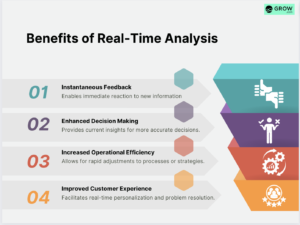
When organizing an international business event, it’s crucial to cater to a global audience that brings diverse expectations, cultures, and needs. This goes beyond logistics—it involves careful planning to ensure that every aspect of the event appeals to a wide range of participants. Hosting such events in global hubs like Tokyo can be an excellent choice due to the city’s strong infrastructure, international appeal, and accessibility. Tokyo is not only renowned for its modern venues and business-friendly environment but also for its ability to cater to diverse attendees, making it a prime destination for international business gatherings.
In this article, we’ll guide you through the key elements of planning a successful international event, including how to choose the right location, ensure cultural sensitivity, and manage logistics for both in-person and remote attendees.
Understanding the Needs of a Global Audience
One of the first steps to planning a successful international business event is understanding the specific needs of your global attendees. This means considering everything from cultural expectations to language preferences and business etiquette. For example, in Asia, business events tend to have a more formal tone, with a strong emphasis on punctuality and well-organized schedules. Attendees from regions like Japan or South Korea might expect more structured presentations, while participants from Australia or New Zealand may prefer a more relaxed, discussion-based approach.
To accommodate this variety, it’s essential to select a venue that offers flexibility in terms of event layout and presentation style. In Tokyo, event organizers can find a range of venues that cater to these needs, offering everything from formal conference rooms to more casual networking areas. To find the right option, you can search online with keywords like venue rental Tokyo to explore spaces that can accommodate different event formats, from product launches to seminars.
By choosing a versatile venue in a global city like Tokyo, you ensure that your event meets the expectations of a diverse audience. The city’s venues are known for their world-class facilities, making it easier to manage cultural differences and create an inclusive experience for everyone.
Cultural Sensitivity in Planning
When hosting an international business event, being aware of cultural differences is essential. Cultural sensitivity can help foster an inclusive environment and ensure your attendees feel respected and valued. This can start with something as simple as greetings and body language.
In some cultures, a handshake is the norm, while others might bow or use different forms of acknowledgment. Knowing these small details and preparing your team to use them appropriately can set the tone for a respectful and professional event.
Beyond greetings, event organizers should consider the format of the event. Some cultures prefer structured presentations with clear hierarchies, while others may thrive in more interactive, free-flowing discussions. Providing options for both can help ensure that all attendees feel comfortable and engaged.
Another way to be culturally sensitive is by offering translation services or bilingual signage at your event. This makes it easier for non-native English speakers to navigate and participate in the event. Tokyo, as a global city, often hosts multilingual events and provides plenty of services to support translation needs.
Providing a Seamless Virtual Experience for Remote Attendees
With the growing popularity of hybrid events, it’s important to ensure that remote attendees have as seamless an experience as those attending in person. This is especially important for international events, where participants may join from different parts of the world.
Start by ensuring that your streaming and video platforms are of the highest quality. Clear audio, high-definition video, and a user-friendly interface are essential to keeping remote attendees engaged. It’s also important to provide technical support throughout the event to address any issues that may arise.
When scheduling virtual sessions, keep time zones in mind. Offering on-demand content can help remote attendees access key presentations or workshops at their convenience, making them feel included even if they can’t attend live sessions.
Food and Hospitality for International Attendees
Food and hospitality play a huge role in making international attendees feel welcome. Providing a variety of menu options that cater to different dietary preferences can leave a lasting positive impression. For example, offering vegetarian, halal, kosher, and gluten-free options ensures that everyone can enjoy the meals.
Additionally, paying attention to food customs can show your global attendees that you respect their cultural preferences. In some cultures, business meals are highly formal, while in others, they’re seen as an opportunity to relax and socialize. Catering your event’s food and dining experience to these cultural norms can make a big difference.
Making Networking Easy Across Borders
Networking is a major part of any business event, but it can be challenging when attendees come from different cultural backgrounds. To encourage networking across borders, create casual meet-and-greet opportunities or structured ice-breaker sessions that help attendees feel more comfortable engaging with each other.
It’s also helpful to design the venue layout in a way that encourages interaction. For example, creating open spaces with casual seating arrangements can promote conversation. You can also designate specific networking zones where attendees can easily gather.
Ensuring Tech Accessibility and Language Support
Technology is crucial for making international business events run smoothly. Providing simultaneous translation services, user-friendly event apps, and clear signage in multiple languages can greatly improve the experience for non-native speakers.
Make sure that your event website, materials, and any digital resources are available in multiple languages. This ensures that all attendees, regardless of their native language, can easily access important information. Look for venues with strong translation capabilities or partnerships with translation services to cater to your international audience.
In conclusion, hosting an international business event requires careful planning and consideration of your global audience’s needs. From choosing the right venue and location to offering translation services and culturally diverse catering, these factors can contribute to the success of your event. By taking the time to understand and cater to the needs of your international attendees, you can create an event that leaves a lasting impression and fosters long-term business relationships.






